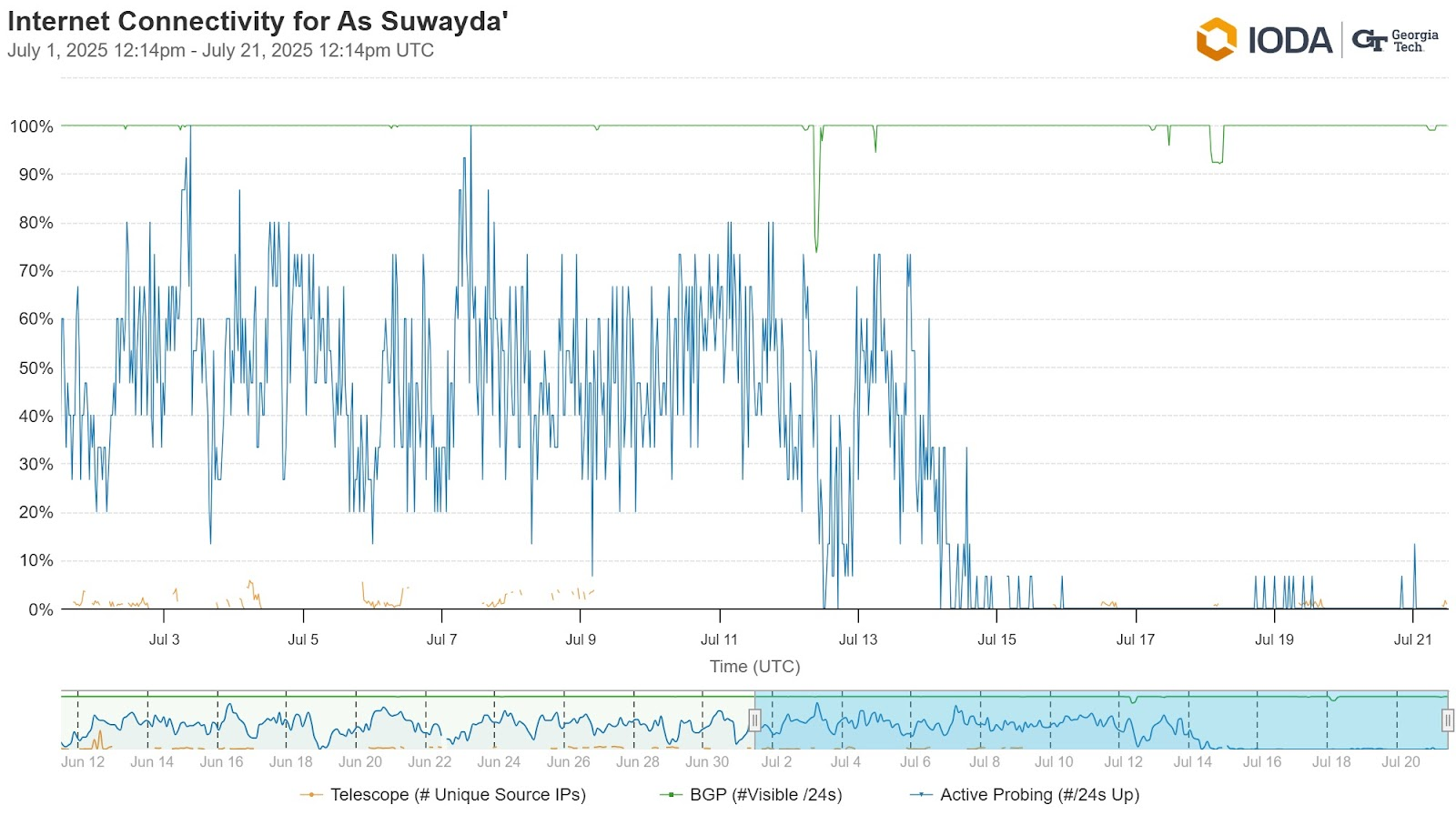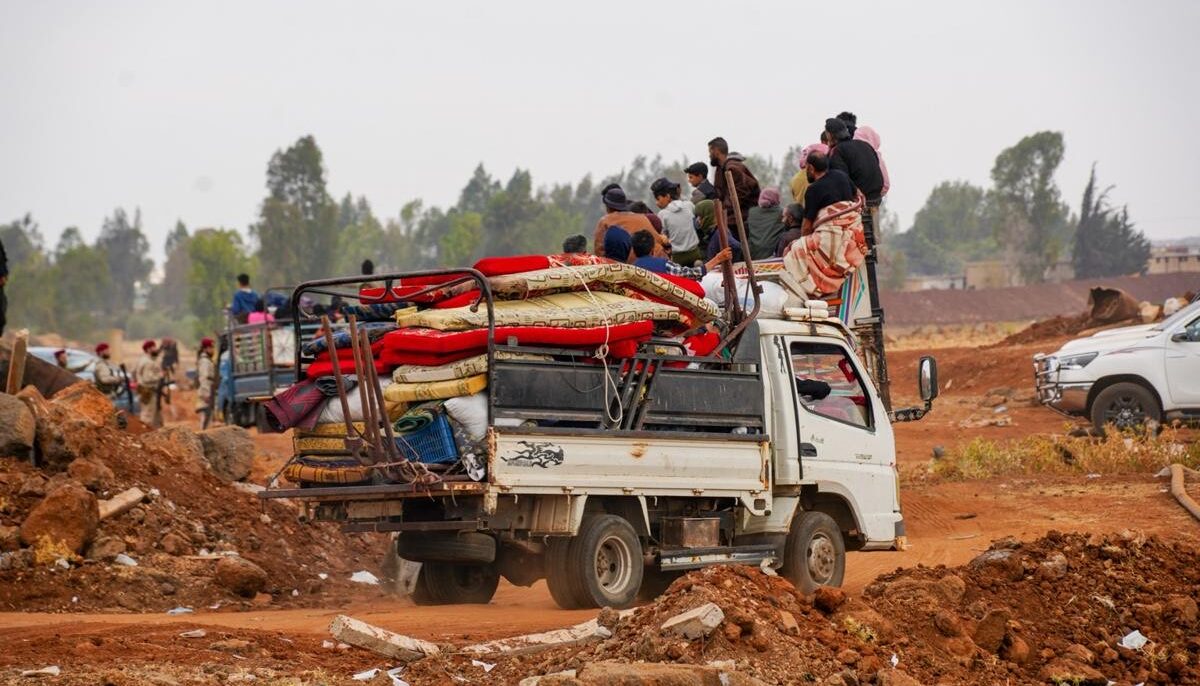Last Friday, the Syrian governorate of Sweida witnessed a complete internet shutdown amid telecommunications disruptions and electricity blackouts. This incident coincided with the attacks on Sweida which erupted on July 13 and killed over a thousand people and displaced more than 140,000 Syrians.
The Syrian Ministry of Communications and Technology announced Sunday that ongoing telecommunications and internet disruptions in Sweida are due to “technical and logistical challenges,” citing severe fuel shortage needed to power equipment at internet and cell towers.
The Ministry also stated that it “has taken a series of urgent measures to restore services as quickly as possible,” after a failed attempt to deliver fuel by a specialized team.
Some people in Sweida told SMEX that “the internet shutdown was part of the attack.”
Telecom disruptions in the southern city have been instrumental in exacerbating an already-dangerous situation. At the height of violence, civilians and those wounded could not ask for help, check in on one another, and keep up with the latest developments.

False and misleading news about the events spread rapidly on X and TikTok where people shared fabricated or outdated videos and images. Al Jazeera’s “Sanad” fact-checking agency documented more than 10 misleading claims within just 48 hours.
“About 300,000 active accounts from four countries are working to spread misleading content,” said Syrian Minister of Information Hamza Al-Mustafa, noting that the Ministry had recently reported 10,000 of such accounts in a single day.
SMEX also received reports of false news spreading widely across all social media platforms, within and outside Syria, many by so-called “Syrian media figures” who took part in the attacks on civilians.
In addition, activists and civilians in Sweida told SMEX that dozens of people were kidnapped, many of them women. Their devices were seized and they were blackmailed for money. Instigators have also created groups to share personal information about specific individuals, mostly women, and incite violence against them.
SMEX has called on Syrian authorities to respect the rights of its residents and refrain from shutting down the internet.
Apart from endangering the lives of thousands amid armed clashes, internet shutdowns severely impact the economy and violate human rights principles such as access to information and freedom of expression. Eyewitnesses in Sweida told SMEX that people were unable to call and find their loved ones, request help for the injured, or evacuate dangerous areas.
We urge anyone experiencing digital violence to reach out to SMEX’s Digital Safety Helpdesk for immediate support. Our team can provide tips and guidance to address any attacks to your online safety and security. We can also communicate with social media platforms to remove offensive content and archive it for legal use.
You may contact the Digital Safety Helpdesk via:
WhatsApp or Signal: +961 81 633 133 (text or voice message)
Email: helpdesk@smex.org



